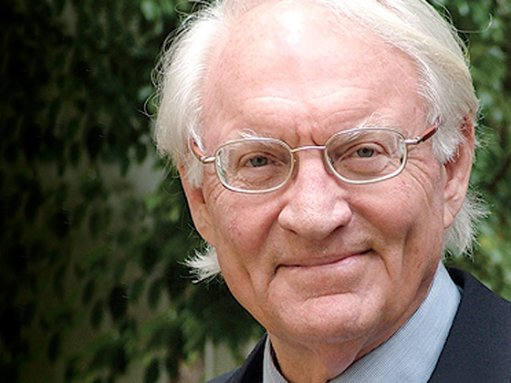
Denis Worrall
In the Insight of 17 April under the heading “Proud Past and New Beginnings” we attributed to Helen Zille the Democratic Alliances’ (DA's) significant growth from the 2009 election to the 2014 election and the prospects of the DA actually winning other metropolitan centres in the local elections of 2016. We also said she had created the threshold from which it would seem natural and logical that a talented young black leader could pick up where she leaves off.” That indeed is the case with the election a week ago of Mmusi Maimane. He is young (34), strong and mature for his years and assumes the office with authority. He is intelligent and understands that politics is not just about ideas but changing social and economic realities. He has an exciting platform presence and a winning personality, and a supportive family. Moreover he is surrounded and supported by some older and more experienced DA colleagues – like James Selfe, Wilmot James, Athol Trollip and has the backing of younger clever people like Geordin Hill-Lewis, John Steenhuisen and Anchen Dreyer. There is therefore no question that the DA conference introduced a new and exciting leader and team to our politics. In fact, Mmusi’s election and the manner of his selection – so unlike the ANC’s disorganised and procedurally chaotic similar functions – suggested to many people a game-changing event in our politics. We believe this should be taken seriously.
The concept of a game-changer in this context refers to a major change in power relations between the political parties. The DA got 16% of the national vote in the 2009 election which it increased to 23% in 2014. This represents a positive swing to the DA of 5.5% with the ANC’s 62% representing a negative loss of 3.75%. The DA’s gains and the ANC’s losses - taken together - amount to 9%. Add to this figure, the Economic Freedom Fighter’s 6.35% shows that around 15% of voters were lost to the ANC in 2014. That’s a lot of votes. But can the DA win enough votes to unseat the ANC in 2019?
Twenty-four parties contested the 2014 election. Most are minnows and really constituted wasted votes. We expect a similar number of parties to contest the 2019 election. But it would be a more stable multi-party system, and our voting estimates are not based on what the DA will gain in votes but what the ANC is likely to lose. We also take into account the following considerations:
- The DA has emerged from a highly successful well-organised and well-publicised conference with its tail up. It has a new leader going into the local elections next year - a wise decision on Helen’s part - with a wider personal attraction where it counts - the black middle class.
- The ANC, by contrast, is divided, corruption and nepotism are deeply ingrained - something understood and resented by a growing number of sophisticated people who regard the ANC as an embarrassment to the country. It lacks vision and its leader is its biggest liability. Moreover, as presidential succession comes to the fore, ethnic divisions are likely to surface.
- The ethnic divisions between the Zulu’s and Xhosas is likely to increase as the succession issue becomes more urgent, with Zulu’s naturally wanting to hold on to power - we believe less and less to protect President Zuma from the criminal charges he faces than purely out of a desire to retain power.
- Government is going to become increasingly difficult for the ANC, with a failing economy and conflicting policies which undermine property rights and chase away investors; confused economic empowerment regulations which negatively affect Coloureds; a regulatory policy that seriously hurts tourism, a major source of external income; agricultural policies that will bear negatively on food security. What is also clear is that racism is now endemic in official policy. Desmond Tutu’s “Rainbow Nation” is a faded memory and Thabo Mbeki’s “I am an African”, which reverberates so resoundingly and positively is now forgotten.
Taking all this together the DA’s election conference and all its consequences seem to represent a new ball-game, with the 2019 general election looking like brings major changes. What our calculations show is that the ANC is unlikely to gain an overall majority, with the DA emerging as a dominant party. The figures look like this.
The ANC loses another 10% to the DA based on the DA gaining 30% of the vote in 2019, up from 23% in 2014.
10% goes to the EFF which sees its vote increasing by 4%.
8% to a new labour-based working party - which explains the EFF’s lower growth rate.
Taking this together we calculate on the basis of the 2014 figures, that the ANC will end up with around 40%.
Bliss it was in that dawn to be alive,
But to be young was very heaven.
Editor's note:
Dr Worrall’s last Insight, which focused on the Newspaper, Industry both in South Africa and internationally, drew some interesting responses mostly (we are pleased to say) positive. One response is of particular interest because it came from Independent Media Pty Ltd and clearly carries the authority of that group’s Executive Chairman Dr Iqbal Surve. In a well-argued, well-written and informative way the claim is made that Dr Worrall was less than fair to the Independent Group. In fact, the response raises significant issues and so we have re-published the Insight and the Independent’s response in its entirety on the Omega website: www.omegainvest.co.za – Political Risk Services/Insight Africa. To login please use the following login details - login@omegainvest.co.za and the password – “informed”.
Lutfia Vayej, the Independent Group’s executive for marketing and communication, ends the letter by inviting Omega “please engage us (Independent) further on this matter”. We take it that this invitation applies also to readers of Insight. But please keep it brief.